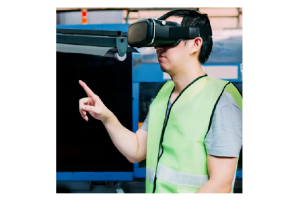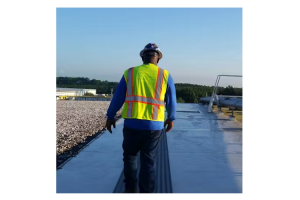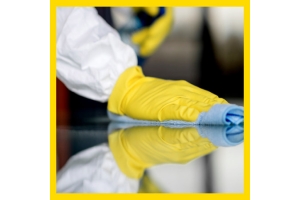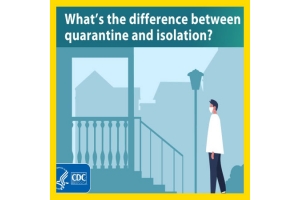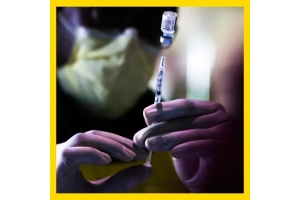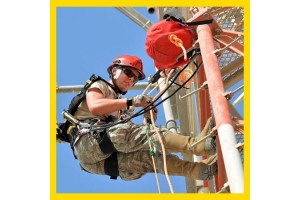Currency
May 03, 2020

Khaleej Times speak to a few Muslim medical workers who are braving this challenge and have chosen to fast even while on the tough duty of dealing with Covid-19 patients.
While the UAE's Fatwa Council has announced that coronavirus patients and medical workers on the frontline may opt-out from fasting during the holy month of Ramadan, Khaleej Times speak to a few Muslim medical workers who are braving this challenge and have chosen to fast even while on the tough duty of dealing with Covid-19 patients on a daily basis.
British Pakistani Rahila Bhatti, a 43-year-old endocrinologist at Mediclinic Parkview Hospital, has been serving as the Covid-19 ward in-charge doctor for the past few weeks at the hospital.
Being in her protective gear most of the time during her 9 to 10-hour shift does not deter the mother of three from fasting.
"I chose to fast because it gives me the strength to handle the stress - emotional, mental and physical - of dealing with Covid-19 positive cases. In fact, sometimes I get inspiration from my Covid-positive patients, who are sick and exempted from fasting, yet they choose to fast because they say it helps them cope with the disease," Bhatti said.
"The hardest part is to stay away from my family - comprising husband and three kids in the age group six to 12 - for long hours. My kids are sleeping when I leave and I only see them in the evening briefly before I put them to bed. I am scared and pray that I never bring any infection back home, so I even avoid hugging and kissing them."
Bhatti tries to get back home by Iftar and immediately after takes a shower before rushing to prepare Iftar. "Although I have domestic help, I like to prepare meals with my children helping in the kitchen."
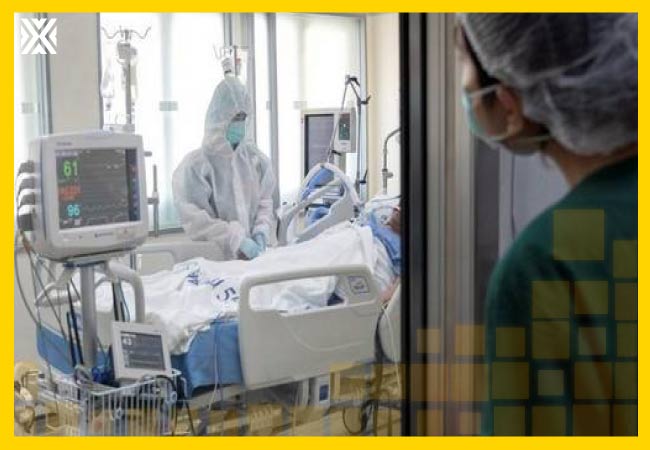
Narrating a heart touching incident, Bhatti said: "One day I came back from work and broke down due to stress. My son, Anas, who noticed this gave me a letter the next day titled ' I love you mom'. His letter took all my stress and pain away and taught me to stay strong and be resilient.
"In his letter, he wrote, 'You are the best mom anyone could ever have .. I am so sorry that we annoy you when you come back home. This card is to show my love for you.You cook food for me.. you work hard in this time and may Allah bless you so much this Ramadan..Whenever I wake up in the morning and you are already gone, I wish I had woken up before. Even though I know you are going to fight against corona.I wish that virus never came. But we all know that Allah sent it for a reason. I hope you have so much reward for helping people with coronavirus-19. I would love to give you as much support as I can. When you feel sad, I am also sad, so let us try not to get you sad."
Mohamed Nabil Al Shafei, a 26-year-old Egyptian nurse working in the emergency department (ER) at the Prime Hospital, is glad he is being able to give his time and energy to serve the people.
He is one of the frontline healthcare workers who receive Covid-19 patients from the ambulance to the ER of Prime Hospital. "Some of these patients are already diagnosed with the virus while for others, we run scans and tests to help with the diagnosis. Since we cannot determine whether they are Covid-positive or not, I have to be in my PPE for all the 12 hoursI am on duty. It does make fasting a bit difficult as the PPE suit is a bit suffocating. I have now gotten used to it."
Nabil, who stays alone in Dubai, cooks Suhoor and Iftar meals and brings it to work. "I work in two shifts - sometimes day and sometimes at night, therefore I need to eat healthily and prefer home-made food. I do miss my family and wish they were here with me, especially during Ramadan time. I manage to make my own Egyptian meals similar to the ones my mother made back home.
He has been fasting from a young age and the fast doesn't his 12-hour schedule. "It is difficult but I don't mind it because I am getting a chance to serve people during these tough times."
While entering the medical profession, Nabil had taken an oath to serve people in all circumstances and had been practising it for the last six years. "My job is to be on the frontlines and not to be scared. I am focused on my job which is in the critical care department. When I receive people, I see them looking scared and yet hopeful, so I have to remain strong. It is my faith in Allah and following his commandments that help me stay rock solid. We have to battle this pandemic and if we, qualified healthcare professionals, get scared how will we protect others?" he asks.
"We stay so busy that it is hard to take time out to even to go for Iftar or prayer.A number of my non-Muslim colleagues come forward to support me. They cover up for me at least for 20 minutes for Iftar and prayer. I have to complete my Suhoor or Iftar meals within minutes, but that is alright. Duty always comes first."
Managing a team of 10 doctors - all of whom are fasting - Dr Mustafa Saif, Internal Medicine Specialist and head of emergency department at Aster Hospital Mankhool, does not stop him from performing discharging duties and also taking out time for prayers.
"As a doctor active in the frontline, life is challenging during Ramadan. I am leading a group of 10 doctors and all of them are fasting. Managing the shift duties of the these team members is a bit challenging as we follow a day shift of eight hours and a night shift of 12 hours.
Dr Said said that doctors in the day shift receive help from supporting staff, but it gets challenging for those in the night shift to manage their Iftar, Taraweeh prayers and Suhoor. "Our hospital distributes individual Iftar and Suhoor meals to all the staff present in the facility. But, it is bit difficult to offer our prayers on time as we are working in the Covid ward, wearing the personal protective equipment," he said.
Dr Saif is working in a hospital which has dedicated a number of its floors for Covid-19 treatment. "We saw more cases of respiratory infections or suspected Covid cases before Ramadan. Gradually, the footfall came down with stringent measures in place. Now, after the partial release of the lockdown, we might see an increase in the footfall. I receive an average of 20 to 25 Covid-suspected cases every day.
While the UAE's Fatwa Council has announced that coronavirus patients and medical workers on the frontline may opt-out from fasting during the holy month of Ramadan, Khaleej Times speak to a few Muslim medical workers who are braving this challenge and have chosen to fast even while on the tough duty of dealing with Covid-19 patients on a daily basis.
My son's letter took my stress away
British Pakistani Rahila Bhatti, a 43-year-old endocrinologist at Mediclinic Parkview Hospital, has been serving as the Covid-19 ward in-charge doctor for the past few weeks at the hospital.
Being in her protective gear most of the time during her 9 to 10-hour shift does not deter the mother of three from fasting.
"I chose to fast because it gives me the strength to handle the stress - emotional, mental and physical - of dealing with Covid-19 positive cases. In fact, sometimes I get inspiration from my Covid-positive patients, who are sick and exempted from fasting, yet they choose to fast because they say it helps them cope with the disease," Bhatti said.
"The hardest part is to stay away from my family - comprising husband and three kids in the age group six to 12 - for long hours. My kids are sleeping when I leave and I only see them in the evening briefly before I put them to bed. I am scared and pray that I never bring any infection back home, so I even avoid hugging and kissing them."
Bhatti tries to get back home by Iftar and immediately after takes a shower before rushing to prepare Iftar. "Although I have domestic help, I like to prepare meals with my children helping in the kitchen."

Narrating a heart touching incident, Bhatti said: "One day I came back from work and broke down due to stress. My son, Anas, who noticed this gave me a letter the next day titled ' I love you mom'. His letter took all my stress and pain away and taught me to stay strong and be resilient.
"In his letter, he wrote, 'You are the best mom anyone could ever have .. I am so sorry that we annoy you when you come back home. This card is to show my love for you.You cook food for me.. you work hard in this time and may Allah bless you so much this Ramadan..Whenever I wake up in the morning and you are already gone, I wish I had woken up before. Even though I know you are going to fight against corona.I wish that virus never came. But we all know that Allah sent it for a reason. I hope you have so much reward for helping people with coronavirus-19. I would love to give you as much support as I can. When you feel sad, I am also sad, so let us try not to get you sad."
Duty always comes first
Mohamed Nabil Al Shafei, a 26-year-old Egyptian nurse working in the emergency department (ER) at the Prime Hospital, is glad he is being able to give his time and energy to serve the people.
He is one of the frontline healthcare workers who receive Covid-19 patients from the ambulance to the ER of Prime Hospital. "Some of these patients are already diagnosed with the virus while for others, we run scans and tests to help with the diagnosis. Since we cannot determine whether they are Covid-positive or not, I have to be in my PPE for all the 12 hoursI am on duty. It does make fasting a bit difficult as the PPE suit is a bit suffocating. I have now gotten used to it."
Nabil, who stays alone in Dubai, cooks Suhoor and Iftar meals and brings it to work. "I work in two shifts - sometimes day and sometimes at night, therefore I need to eat healthily and prefer home-made food. I do miss my family and wish they were here with me, especially during Ramadan time. I manage to make my own Egyptian meals similar to the ones my mother made back home.
He has been fasting from a young age and the fast doesn't his 12-hour schedule. "It is difficult but I don't mind it because I am getting a chance to serve people during these tough times."
While entering the medical profession, Nabil had taken an oath to serve people in all circumstances and had been practising it for the last six years. "My job is to be on the frontlines and not to be scared. I am focused on my job which is in the critical care department. When I receive people, I see them looking scared and yet hopeful, so I have to remain strong. It is my faith in Allah and following his commandments that help me stay rock solid. We have to battle this pandemic and if we, qualified healthcare professionals, get scared how will we protect others?" he asks.
"We stay so busy that it is hard to take time out to even to go for Iftar or prayer.A number of my non-Muslim colleagues come forward to support me. They cover up for me at least for 20 minutes for Iftar and prayer. I have to complete my Suhoor or Iftar meals within minutes, but that is alright. Duty always comes first."
Leading with a stress-free environment
Managing a team of 10 doctors - all of whom are fasting - Dr Mustafa Saif, Internal Medicine Specialist and head of emergency department at Aster Hospital Mankhool, does not stop him from performing discharging duties and also taking out time for prayers.
"As a doctor active in the frontline, life is challenging during Ramadan. I am leading a group of 10 doctors and all of them are fasting. Managing the shift duties of the these team members is a bit challenging as we follow a day shift of eight hours and a night shift of 12 hours.
Dr Said said that doctors in the day shift receive help from supporting staff, but it gets challenging for those in the night shift to manage their Iftar, Taraweeh prayers and Suhoor. "Our hospital distributes individual Iftar and Suhoor meals to all the staff present in the facility. But, it is bit difficult to offer our prayers on time as we are working in the Covid ward, wearing the personal protective equipment," he said.
Dr Saif is working in a hospital which has dedicated a number of its floors for Covid-19 treatment. "We saw more cases of respiratory infections or suspected Covid cases before Ramadan. Gradually, the footfall came down with stringent measures in place. Now, after the partial release of the lockdown, we might see an increase in the footfall. I receive an average of 20 to 25 Covid-suspected cases every day.
